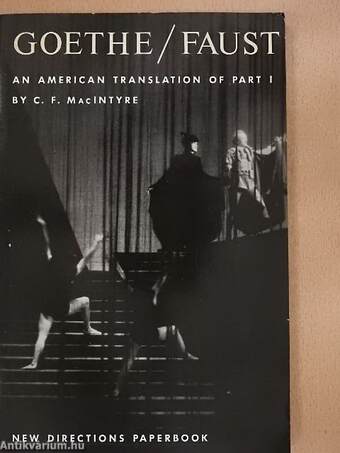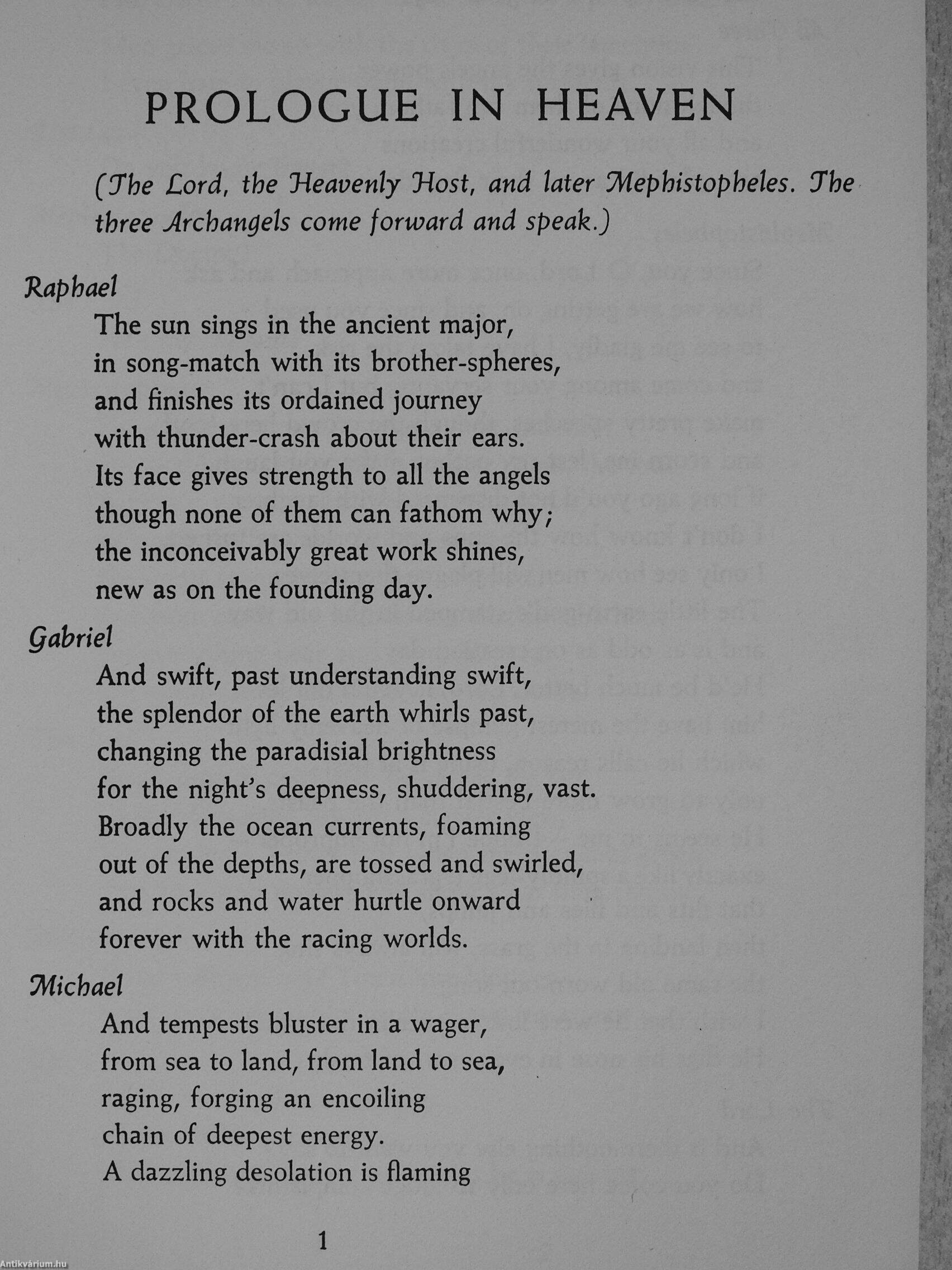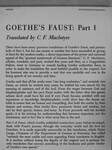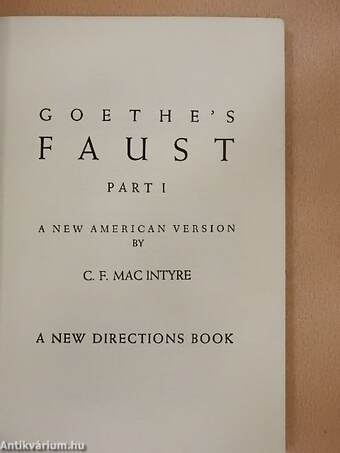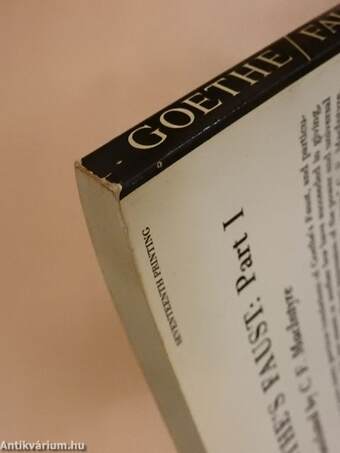1.067.675
kiadvánnyal nyújtjuk Magyarország legnagyobb antikvár könyv-kínálatát

VISSZA
A TETEJÉRE
JAVASLATOKÉszre-
vételek
Faust I.
| Kiadó: | New Directions Book |
|---|---|
| Kiadás helye: | New York |
| Kiadás éve: | |
| Kötés típusa: | Ragasztott papírkötés |
| Oldalszám: | 188 oldal |
| Sorozatcím: | New Directions Paperbook |
| Kötetszám: | NDP70 |
| Nyelv: | Angol |
| Méret: | 20 cm x 13 cm |
| ISBN: | 0-8112-0056-6 |
naponta értesítjük a beérkező friss
kiadványokról
naponta értesítjük a beérkező friss
kiadványokról
Előszó
TovábbFülszöveg
drama seventeenth printing
GOETHE'S FAUST: Part I
Translated by C. F. Maclntyre
There have been many previous translations of Goethe's Faust, and particularly of Part I, but for one reason or another few have succeeded in giving, at least for the modem reader, a direct impression of the power and universal appeal of this "greatest masterwork of German literature." C. F. Maclntyre, scholar, translator and poet, worked five years and then, as a Guggenheim Fellow, went to Germany to consult leading Goethe authorities there, in order to make his translation the most faithful possible to the original: but his foremost aim was to provide a text that was readable and cast in the living speech of our country and time.
Goethe said that all his works were "one long confession," and certainly into Faust, on which he worked sixty years, he welded his own search for the meaning of existence and of the soul. From the wager between God and Mephistopheles and the pact Faust makes with the... Tovább
Fülszöveg
drama seventeenth printing
GOETHE'S FAUST: Part I
Translated by C. F. Maclntyre
There have been many previous translations of Goethe's Faust, and particularly of Part I, but for one reason or another few have succeeded in giving, at least for the modem reader, a direct impression of the power and universal appeal of this "greatest masterwork of German literature." C. F. Maclntyre, scholar, translator and poet, worked five years and then, as a Guggenheim Fellow, went to Germany to consult leading Goethe authorities there, in order to make his translation the most faithful possible to the original: but his foremost aim was to provide a text that was readable and cast in the living speech of our country and time.
Goethe said that all his works were "one long confession," and certainly into Faust, on which he worked sixty years, he welded his own search for the meaning of existence and of the soul. From the wager between God and Mephistopheles and the pact Faust makes with the latter—that this genial, urbane devil could have his soul if ever Faust became satisfied with any experience or knowledge Mephistopheles could show him—the drama unfolds in scenes that are human and compelling, that hold the reader by their despair and ecstasy, their tender love, passionate desire and wisdom, but also by their gayety, humor, and irony. As Faust proceeds with his devilish guide, it is his striving for understanding that becomes important, not the attainment, and in fact this is what saves him in the end.
Part I of Faust, which Goethe published twenty-four years before its sequel, deals with Faust's journey through the everyday world and his love for Gretchen. It is made especially memorable in this translation, which Victor Lange, Chairman of The Department of German at Princeton, has called "certainly the most usable and most appealing Faust translation in English. It is modem without losing the dignity of the original and is perhaps the only translation that conveys something of the freshness and poetic vitality of Goethe's ovm speech." Vissza



